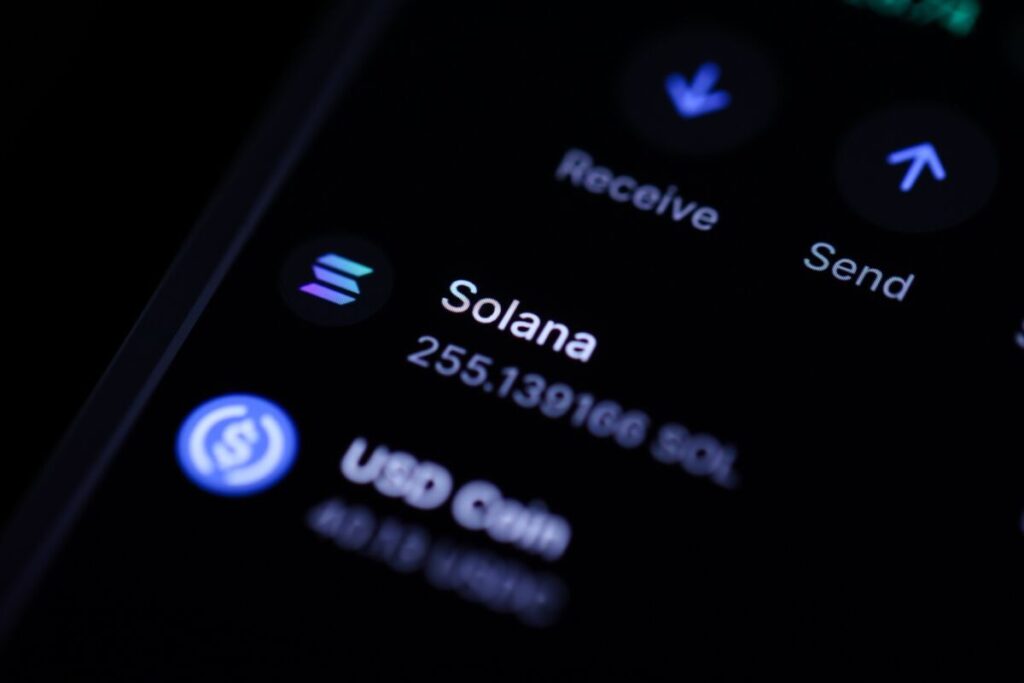Solana ETFs: A Long Shot with Potential to Attract Billions

Quicktake
- VanEck and 21Shares Filing: VanEck and 21Shares filed for Solana ETFs this week.
- Regulatory Challenges: Solana faces regulatory hurdles unlike Bitcoin and Ether, which trade on regulated futures exchanges.
- Market Potential: Despite being labeled as an unregistered security, Solana ETFs could still attract significant investment.
Solana ETFs: A Long Shot with Potential to Attract Billions
VanEck and 21Shares, prominent players in the digital asset space, have recently filed for exchange-traded funds (ETFs) focused on Solana, a cryptocurrency that has been gaining traction despite regulatory uncertainties. This move, while considered a “long shot” by many analysts, is seen as a calculated risk that could pay off substantially if market sentiment and regulatory perspectives shift favorably.
The Regulatory Landscape
Unlike Bitcoin and Ether, which have already seen ETFs approved and are expected to have more greenlit soon, Solana faces distinct challenges. Both Bitcoin and Ether have futures traded on the regulated Chicago Mercantile Exchange (CME), providing a level of oversight and security that appeases the U.S. Securities and Exchange Commission (SEC). Solana, however, does not have such futures, and it has been among the 19 tokens designated as unregistered securities by the SEC in its lawsuits against Binance and Coinbase Global Inc. last year.
VanEck and 21Shares’ Bold Move
VanEck and 21Shares’ decision to file for Solana ETFs is a bold step that signals their confidence in the cryptocurrency’s potential. Despite the regulatory challenges, these firms are banking on a shift in sentiment toward digital assets and the possibility that Solana’s growing ecosystem and technological advancements will eventually garner regulatory acceptance.
According to VanEck, the proposed Solana ETF would directly hold the cryptocurrency, providing investors with a straightforward way to gain exposure to Solana without having to navigate the complexities of crypto exchanges and wallets. This could appeal to institutional investors and retail traders looking for a more accessible entry point into the Solana market.
Market Potential
The potential for Solana ETFs to attract billions of dollars in investment is significant. Solana has been one of the standout performers in the cryptocurrency market, known for its high-speed transactions and lower fees compared to other major blockchains. These attributes have made it a favorite among developers and investors alike, leading to a robust ecosystem of decentralized applications (dApps) and projects built on the Solana network.
If approved, Solana ETFs could unlock a new wave of investment, similar to what has been observed with Bitcoin and Ether ETFs. These financial products provide a bridge for traditional investors to enter the crypto market, offering a familiar investment vehicle with the added benefit of regulatory oversight. The influx of capital from such ETFs could further solidify Solana’s position in the market and spur additional growth and development within its ecosystem.
The Road Ahead
Despite the optimism, the path to approval for Solana ETFs is fraught with challenges. The SEC’s current stance on cryptocurrencies, particularly those it deems unregistered securities, poses a significant hurdle. However, the regulatory environment is not static, and shifts in policy or legal interpretations could pave the way for approval in the future.
Moreover, the ongoing efforts by cryptocurrency advocates and industry groups to engage with regulators and educate them on the nuances of digital assets could also influence the SEC’s stance. Successful lobbying and advocacy efforts have the potential to change the regulatory landscape, making it more conducive for the approval of innovative financial products like Solana ETFs.
Conclusion
VanEck and 21Shares’ filing for Solana ETFs represents a strategic bet on the future of digital assets. While the regulatory challenges are substantial, the potential rewards are equally significant. If these ETFs gain approval, they could attract billions in investment, providing a substantial boost to Solana’s market presence and contributing to the broader adoption of cryptocurrency-based financial products.
As the regulatory environment evolves and market sentiment shifts, the possibility of Solana ETFs becoming a reality remains a compelling prospect. Investors and industry watchers will be keeping a close eye on developments in this space, eager to see if this “long shot” will ultimately pay off.



